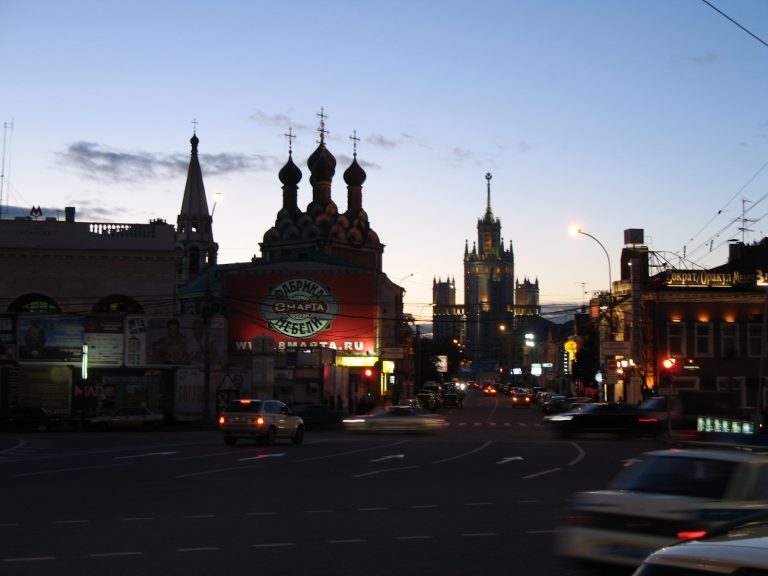Russia is once again grappling with a surge in Coronavirus Disease 2019 (COVID-19) cases. In the past three weeks, the country has repeatedly had record-high numbers of infections and deaths. To tackle the crisis, Moscow is implementing new restrictions.
“In order to prevent further spread of the novel coronavirus (COVID-19) and to protect public health, the President has announced that October 30 to November 7, 2021, inclusive, will be paid non-working days,” the Kremlin said in a statement.
On Oct. 20, the government task force reported 1,028 deaths during the previous 24 hours, the highest figure since the start of the pandemic. According to Our World in Data, the highest number of single-day deaths in Russia last October was around 305, registered on Oct. 31, 2020.
The Oct. 20, 2021 death toll is an increase of 237 percent when compared with last October’s figures. Russia has the highest number of COVID-19 fatalities in Europe, with over 226,000 deaths.
“I think the country is now falling into disaster… I have hope we will soon come to a certain limit beyond which we will not go, but this is still very high morbidity and mortality. Hospitals are overwhelmed,” Vasily Vlassov, Russian epidemiologist and former adviser to the World Health Organization (WHO), told CNN.
Success
You are now signed up for our newsletter
Success
Check your email to complete sign up
The Cabinet’s recommendation for a non-working period starting Oct. 30 has President Vladimir Putin’s support. In regions where COVID-19 cases are more severe, the non-working period could start as early as Oct. 23 and extend beyond Nov. 7.
“Our task today is to protect life and health of our citizens and minimize the consequences of the dangerous infection… To achieve that, it’s necessary to first of all slow the pace of contagion and mobilize additional reserves of the health care system, which is currently working under a high strain,” Putin said in a video call.
The non-working period is expected to prevent the spread of the SARS-CoV-2 virus by keeping people out of offices and public transportation. Currently, Moscow and other big cities allow the public to access cinemas, restaurants, bars, gyms, and cafes.
Deputy Prime Minister Tatyana Golikova, who leads the task force, stressed that the non-working week should include restricting access to theatres, restaurants, and other entertainment venues. She also urged citizens to avoid traveling during the period. After the government announced the plan, many Russians decided to take advantage of the break by booking flights to resorts in the Black Sea.
To help businesses absorb the shock of non-working days, the government has announced compensation in the form of low-interest credits and a one-time payment equivalent to an employee’s minimum monthly wage.
Meanwhile, the government’s push for vaccination has been met with a lukewarm response. Out of the 146 million people in the country, about 45 million have been fully vaccinated. In countries like the United States, UK, and Portugal, 56, 67, and 86 percent of the population are fully vaccinated, respectively.
President Vladimir Putin is apparently puzzled by the low vaccination rate. Even some of his friends, who promised to get a shot after he did, are delaying getting the jab. He urged citizens to get vaccinated, saying that the homemade Sputnik V vaccine is “reliable and efficient.”
Experts believe that the lower vaccination rate in Russia is the result of deep public distrust in the state, which had earlier this year declared that it had defeated the pandemic. Authorities have also been spreading propaganda about the supremacy of domestic vaccines over Western counterparts, potentially also negatively impacting public opinion.
















